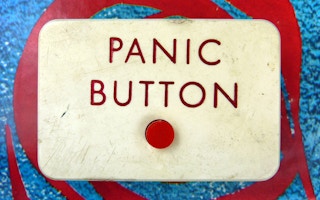Polls can be a real drag. Just when we start thinking we’re something special, we read a survey that knocks us down to size. So, while the Aussies have earned some serious bragging rights for offering the world WiFi, they also have to swallow a survey that ranked them in the top five waste producing nations, on a per person basis. And while Britain pioneers biomedical breakthroughs, it will have to address an estimated 7.3 million tonnes of household food waste thrown away in 2015 – up from 7 million tonnes in 2012.
The reality is, we are forging the future at a rate so meteoric that there seems to be no time for looking back . In one way, our genius has landed us in fields of study and innovation unimaginable. Yet, in another way, we have never been dumber when it comes to the basic ways in which our actions affect the world around us. Our 21st century achievements may merit a big pat on the back, but they also demand we look down to read the price tag they place on our planet.
What we should be doing is panicking!
A call for consequence
In our streamlined and super convenient consumer culture, there’s a considerable disparity between what we do and what our doing does to the earth. We flush the toilet, without thinking that it takes an average 13 litres of water to fill it up again. We throw our rubbish in the dustbin, disconnected from the reality projecting a global 2.2 billion tonnes of landfill waste by 2025. We buy food and clothing with no concept of their provenance.
“
Let’s panic, and panic well. And then let’s harness our panic for good.
The order of the day is ‘out of sight, out of mind’, because, in fact, we can afford to think that way. The landfill, the sewerage station, the intersection between river and wastewater… these offensive spaces of human squalor are just too far over the hill for the average first-world consumer to see. As a result, our disposable lifestyles go unchallenged with no sense of consequence or call to pick up our abominable mess.
The catalyst of crisis
The truth is, like it or not, we are seriously in the dwang. How else do you interpret it, when the Global Footprint Network calculates we need 50 per cent more Earth than we currently have to continue operating at this economic pace? Beyond a matter of opinion, the sheer numbers speak for themselves; the Earth simply cannot sustain our nasty habits .
Scientists and economists, in spite of all their compelling arguments and incentives over decades, have been unable to sway human behaviour. (Look no further than the average accelerating rate of global CO2 emissions as a case in point.) The only appropriate response, if we are to rise to this colossal challenge, is to call a crisis.
Paul Gilding, activist and advisor on sustainable economy, explains its catalysing power to unleash immediate action: “When we feel fear and we fear loss, we are capable of quite extraordinary things.” We see the rallying resilience of the human spirit every time the rubble of tragedy is upturned.
“
In one way, our genius has landed us in fields of study and innovation unimaginable. Yet, in another way, we have never been dumber when it comes to the basic ways in which our actions affect the world around us.
We also see how crisis can move the mountains of political economies overnight. (Take the bombing of Pearl Harbour, as an example. Just four days later, the entire civilian car industry was frozen and funds redirected for the rationing of food and energy).
In order for audacious but achievable action such as Gilding’s One Degree War Plan to counteract climate change, global experts and political leaders need to call the crisis now. But, in order for humanity to outwit the odds against us, the responsibility to properly panic is on all of us.
Do your bit
Heart attack victims, or others who have had a ‘near death’ experience, will tell you that it is often this massive jolt to the senses that spurs them to take action to change their lifestyle drastically by losing weight, working less, eating better, exercising, etc. In other words, it is only the reality that they have a finite (and fragile) existence and that they have something precious (their life) to lose that sees them realise that they have to do something so as not to lose it.
Perhaps, when it comes to our planet, we collectively need a jolt, and a very serious one, to get us all on board to effect positive behavioural change.
So let’s panic, and panic well. And then let’s harness our panic for good – using its power to unify, to inform and to mobilise mass response to the greatest problem the world has yet seen: its ability to self-destruct!
Ellen Worthington is Environmental Advisory at Aurecon, and Sharon Manssen is Quality, Environment & Sustainability Manager, ANZ Region at Aurecon. This post is republished from the Aurecon’s Just Imagine blog with permission.


















